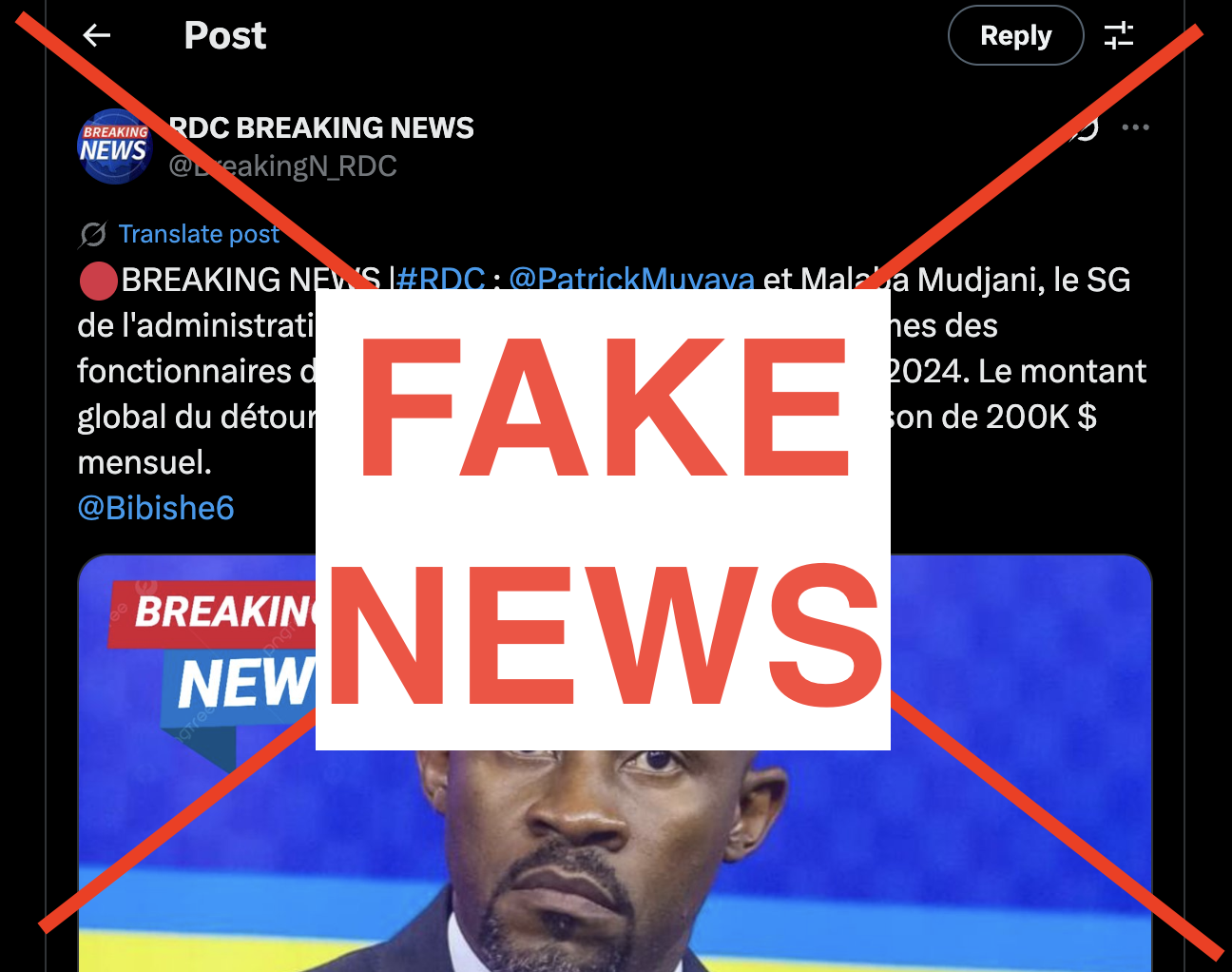DRC: How Fake News Scammers Try to Blackmail Government Officials
An investigation into how digital scammers in the Democratic Republic of Congo use fake news as a tool for attempted extortion of government officials. The case study reveals sophisticated patterns of digital manipulation and the government's strategic response to combat misinformation.

Digital disinformation campaigns targeting DRC government officials expose broader patterns of attempted extortion
Analysis of an Unfounded Attack: A Well-Known Pattern
On July 28, a tweet from the account "BreakingNewsRDC" made serious allegations against Communications Minister Patrick Muyaya and Secretary General Malaba Mudjani, claiming they had misappropriated $2.4 million in bonuses from the Ministry of Communication and Media. This accusation came without evidence, documentation, or verification—merely a floating number and a name thrown into the digital void.
The Anatomy of Digital Extortion
While the tweet's reach remained limited, it exemplifies a recurring pattern in the Democratic Republic of Congo's digital landscape: attacks built not on facts but on expectations. This methodology reveals a concerning intersection of disinformation and attempted extortion in the digital age.
From Support to Slander: Following the Money
The account @BreakingN_RDC represents a rebranding of @TshitshiNews, which previously showed enthusiastic support for President Félix Tshisekedi. This dramatic shift from flattery to accusation isn't ideological—it's transactional, reflecting a broader pattern of digital manipulation for financial gain.
The Government's Zero-Tolerance Approach
The current Congolese administration has maintained a firm stance against digital extortion attempts, refusing to engage with or compensate those who spread false information for personal gain. With enhanced technical capabilities to trace the origins of such attacks, the government's silence represents strength rather than weakness.
Implications for Digital Governance
This case highlights a critical challenge in modern governance: the emergence of hybrid networks operating at the intersection of political activism and digital extortion. When faced with official non-engagement, these accounts simply pivot to new targets, perpetuating a cycle of misinformation and attempted blackmail.
Jasmine Demraoui
Journalist in governance and climate reform, based in Windhoek.
